

Ever thought about how the food on your plate can change the world and your health? I’ve been exploring the magic of a Vegetarian Diet, and let me tell you, it’s an adventure for your taste buds and good for our planet!
If you’re curious about how munching on greens can boost your well-being and help Mother Earth, stick around. This isn’t just about salads; it’s a full-on exploration of rich flavors from nature’s bounty that’ll benefit your body in ways you didn’t expect.
Embarking on a vegetarian diet is all about finding the right balance between nutrients that keep us strong and choices that protect our environment. It means creating meals packed with tasty veggies, grains, nuts, and fruits – foods that are both nutrient-rich and kind to the earth.
By eating plant-based dishes, we nourish ourselves with vitamins from fresh produce while cutting down on resources like water and land used for raising animals. It’s simple really; tossing colorful veggies onto my plate makes me feel good inside out!
When I first thought about going meat-free, it was a big leap for me. Turns out, it’s one of the best choices I’ve made – for my body and our Earth. Let me walk you through why picking a vegetarian lifestyle could be good for you too.
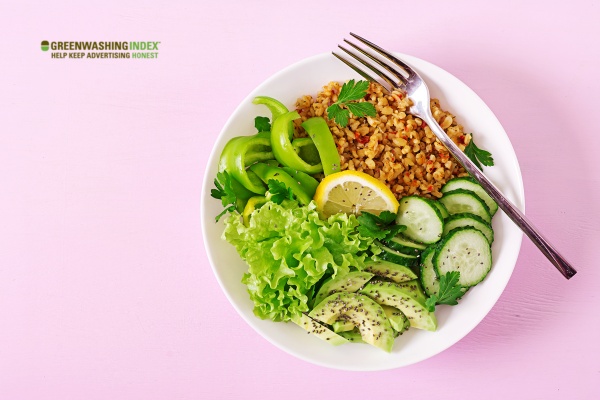
There are stacks of really strong reasons to go vegetarian. It boils down to two big areas: your health and helping the planet.
Living vegetarian isn’t just about cutting out meat; it’s about embracing loads of tasty foods that are great for us and kinder to our planet.
If someone told me ditching burgers for beans was going to be a breeze, I’d have laughed! But here are some tips from my own experience:
Remember everyone’s different – what worked wonders for me might need tweaking so it fits right for you! The key is patience; changes like these don’t happen overnight but stick with them because this way of eating feels just as good as it tastes! Plus, knowing we’re taking care of our health while also doing something meaningful for Earth makes every single veggie bite worth it!
Also Read: New Nordic Diet Guide: Embracing Health and Sustainability
When we talk about a vegetarian diet, a lot of folks think it’s just about giving up meat. But it’s way more than that. It is like picking out the best fuel for your body. You don’t pop just any old snack into your mouth. You choose the greens and beans, nuts, and whole grains because they’re like health grenades – packed with good stuff.
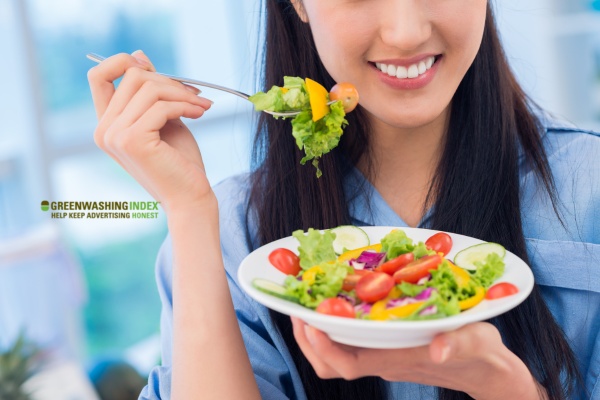
First, let me tell you about the warrior nutrients you get from these plant-based foods:
So here’s the bottom line: this green plate is armed to its edges with enough vitamins, minerals, and proteins to make any meaty meal blush!
Let me set straight some common myths:
Many people worry if they pick up a lettuce leaf over a chicken wing they’ll fall apart or waste away! Not true at all! In fact – going green on the plate turns out to make both my muscles and my conscience pretty darn robust!
These vibrant vegan veggies set us up really nicely for a healthier tomorrow, proving once again that we can feast well without compromise – tasting all life’s delights while backing team Earth all along!
Also Read: Mediterranean Diet: Your Heart and Earth-Friendly Guide
When I think about what I put on my plate, it’s not just about taste and health anymore. It’s also about how my food choices affect the planet. That’s where a vegetarian diet steps in as a hero.
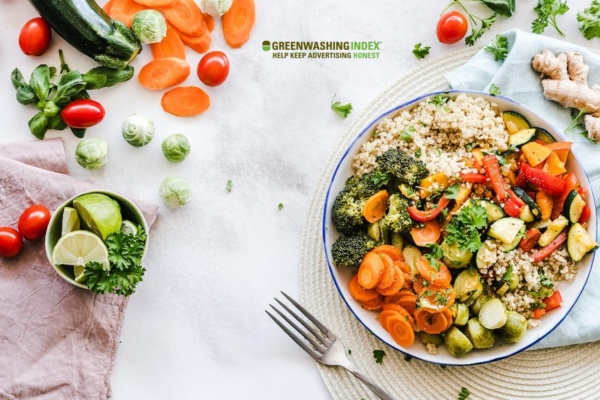
Choosing vegetables, fruits, grains, and legumes over meat does so much good for our planet. Here’s exactly how it helps:
Every time I choose a veggie burger over a beef burger, it’s like throwing a small pebble in a pond—it creates ripples that spread out wide:
Eating as a vegetarian is really powerful—it’s all about both my health and taking care of our planet at the same time!
Also Read: Flexitarian Diet Explained: Easy Guide for Beginners
When I started my journey into the vegetarian lifestyle, I knew that eating well was more than just leaving out meat. A vegetarian diet has to be full of many different foods to make sure your body gets what it needs. Here’s how I learned to love a world of plants, nuts, grains, and more.
At first, my meals were simple: some pasta here, a salad there. But soon, I found that the same old foods got boring. That’s when my kitchen became a lab for experiments with new veggies and grains.
One day, I tried lentils. They’re small, come in pretty colors like green and red, and are easy to cook with. Now they are one of my favorite things to eat because they are good for me and tasty too!
I also found out about quinoa (say it like ‘keen-wah’). It is like rice or couscous but even better for you. Quinoa was something new for me but now it’s part of my usual food list.
And who knew that tofu could taste so good? Once I learned how to cook it right – crispy on the outside and soft on the inside – it became a star in my stir fries and salads.
Vegetables like kale and sweet potatoes also joined my plate party. Kale can be tough raw but when you cook it with garlic or add it to soups – yum! And sweet potatoes can be more than just fries; try them baked or mashed.
Here’s something exciting: cooking without meat opened doors for me that I didn’t know existed:
The best part? Sharing these new dishes with friends who don’t follow a vegetarian diet surprises them with how delicious sustainable eating can be!
Now let’s talk about making sure every meal ticks all boxes for health:
Creating balanced meals might seem tricky at first but once you get the hang of mixing these things together; satisfaction and health benefits come naturally!
Remember this: Eating a vegetarian diet isn’t just about giving up meat; it’s about discovering both the health benefits of vegetarian living and doing good for our planet through sustainable eating–an eco-friendly diet packed with diversity for both your taste buds and well-being!
Also Read: Composting Bread: Unveiling the Truth About Bread Waste
Following a vegetarian diet means choosing to eat foods that don’t come from animals. But it’s not just about the food—it’s a lifestyle choice that can often touch on each part of my life, including social events. When I step out into a world where many people eat meat, the social aspect can get tricky.
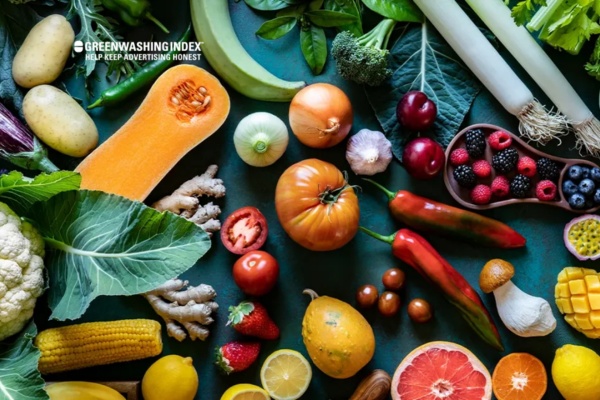
Let’s talk about those times when I’m out with friends or family, at parties, or dining in restaurants. How do I stick to my vegetarian lifestyle and still enjoy these moments? Here are some strategies:
1. Plan Ahead:
I always try to check the menu before I go to a restaurant. If we’re planning to go somewhere new, I’ll look it up online or give them a call to see if they have vegetarian options.
2. Communicate Your Needs:
If I’m invited to someone’s house for dinner or an event, where possible, I let them know beforehand in a kind way that I follow a vegetarian diet – this can often prevent any awkwardness when it comes time to eat.
3. Offer To Bring A Dish:
In situations where it might be tough for my host to accommodate my dietary needs, offering to bring something is helpful. This way there’s something on the table I can enjoy and others might get curious and try some too!
4. Be Flexible:
Sometimes menus don’t have exactly what we’d like them off the bat; when this happens, customizing orders is key – asking for dishes without meat or having sides as a main course are options.
5. Focus On What You Can Eat:
Rather than concentrating on what’s not possible with my dietary restrictions at social events or eateries, focusing on what is available lifts my mood and makes things easier.
6. Find Vegetarian-Friendly Venues:
I love suggesting places with great vegetarian selections for group gatherings as this guarantees comfort for me and exposes others to beautiful veggie-based meals they may not usually consider.
Keeping these strategies in mind helps me maintain the balance between health and pleasure while upholding an eco-friendly diet even when out enjoying life’s social joys!
When I think about living a healthy life, I see it like a dance. My green plate full of veggies is one dance partner, and my exercise routine is the other. Together, they move in sweet harmony. It’s not just about eating my greens but also moving my body to the rhythm of good health.
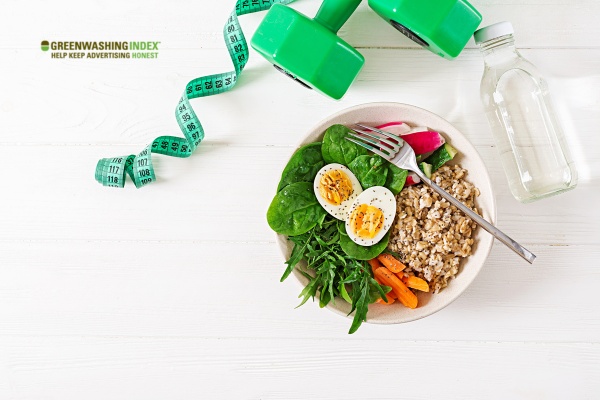
Let’s chat about how getting active goes hand-in-hand with my vegetarian diet. When I eat lots of fruits, vegetables, grains, and beans – all those good plant foods – my body gets loads of nutrients it needs to stay strong and happy. But it’s not just about what goes on my plate; how I move my body matters too.
First off, when I’m munching on a diet rich in plants and stepping up my game with regular physical activity:
Overall, living this vegetarian lifestyle isn’t just good for Mother Earth; it’s perfect for me too! With each step or stretch matching each bite of broccoli or apple crunch – together they create this beautiful balance that makes me feel amazing both inside and out!
So here’s the takeaway: lace up those sneakers and let’s get moving alongside our green plates as one big healthy family making every snack count towards a happy heartbeat.
Also Read: How Much Does a Greenhouse Cost? A Breakdown of Expenses
When I started on my path to a greener plate, I knew it wouldn’t be easy. Choosing a vegetarian lifestyle means more than just eating vegetables; it’s about balancing health and sustainability.
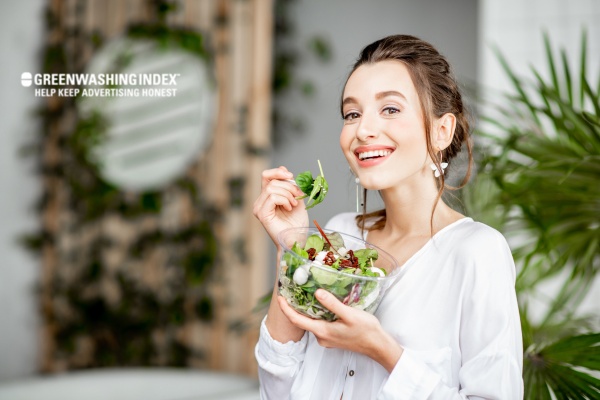
Challenges of Sticking to a Vegetarian Diet
Despite these challenges, the health benefits and positive environmental impacts of a vegetarian diet provide the motivation to develop strategies and persevere in making sustainable and ethical food choices.
As I wrap this up, I think about how my choices, like the vegetarian diet, impact more than just myself. They touch the planet and the people around me. It’s not just about eating greens and beans; it’s about being part of a bigger picture.
Choosing to live as a vegetarian isn’t always easy. There are temptations and questions from friends, and sometimes you might miss your old diet. But it is so worth it when you think of all the good you’re doing for your body and our world.
You don’t have to be loud or preachy; just live your truth strongly and kindly.
Remember:
You’re not just eating differently; you’re leading by example—a shining beacon in greener living… And that, my friend, is something truly special.
No, it’s not hard to get protein on a vegetarian diet. There’s plenty of protein in beans, lentils, tofu, and nuts. Plus, many veggies have some protein too.
Vegetarians can eat B12-fortified foods or take vitamin supplements to make sure they’re getting enough of this important nutrient.
Yes, switching to a vegetarian lifestyle can help fight climate change because plant-based diets usually need less land and water and create fewer greenhouse gases than meat-based diets.
To add more plant-based meals, you could have Meatless Mondays, swap meat with beans in your favorite dishes, or try out new vegetarian recipes that look tasty.
